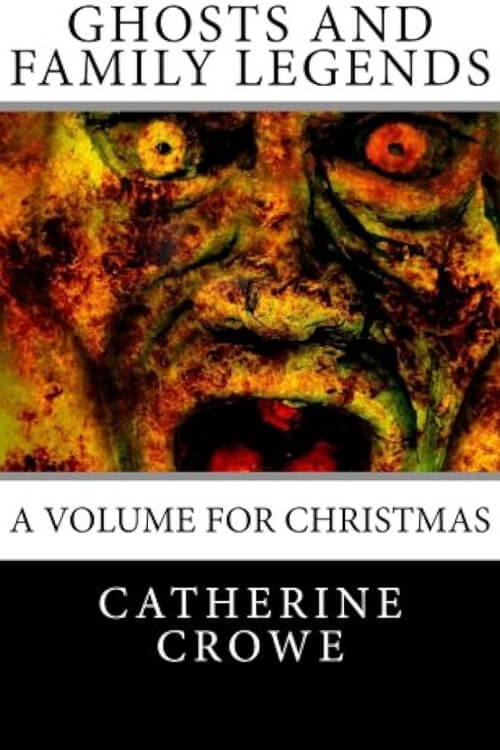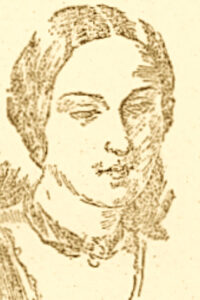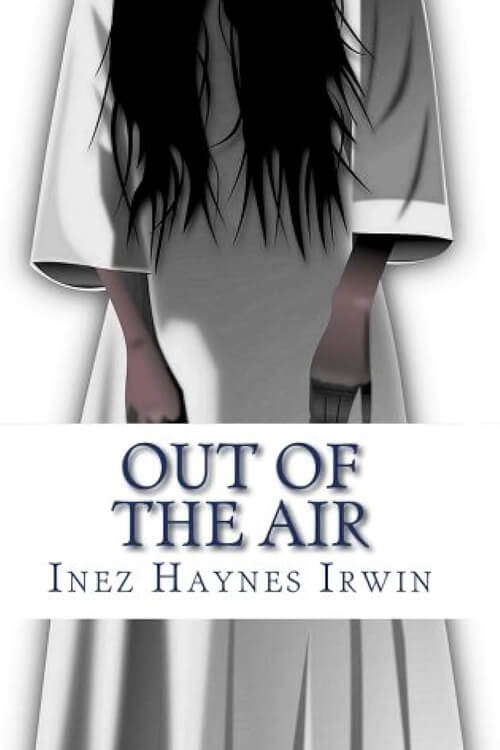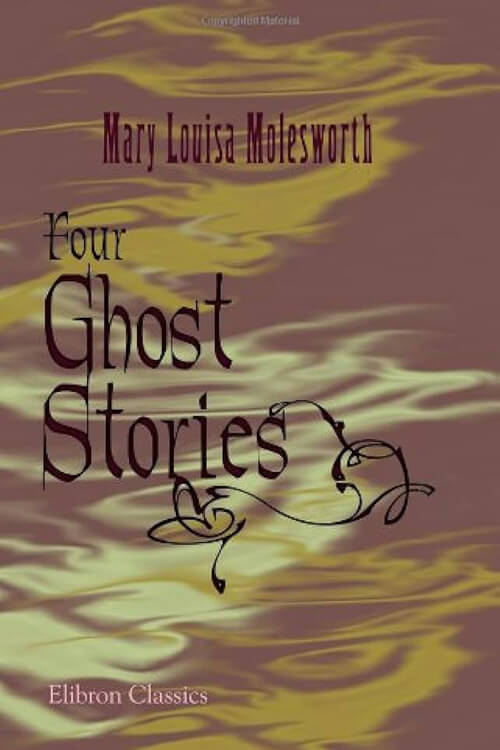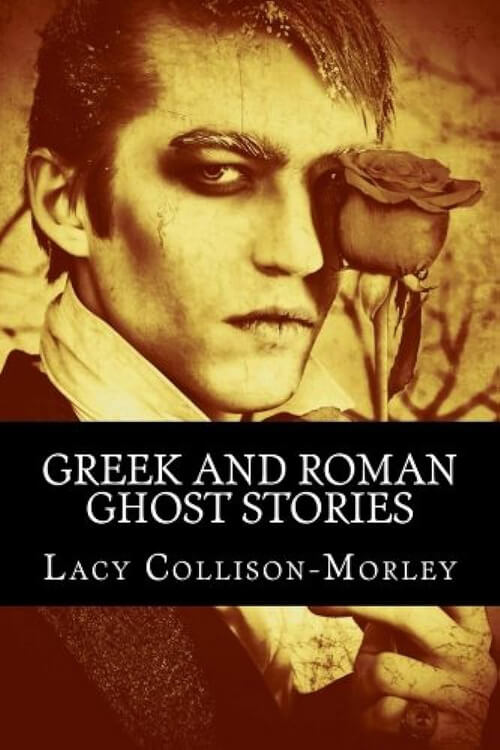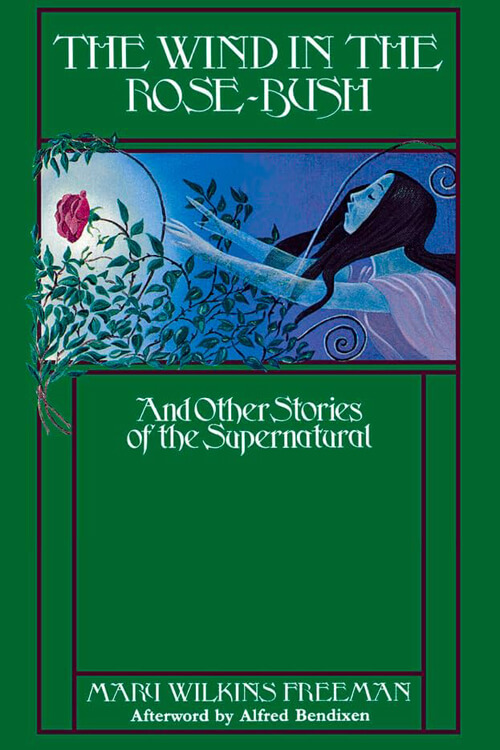
Ghosts and Family Legends, A Volume for Christmas
I had read a page or two, and feeling drowsy had laid down the volume to compose myself to sleep when I was aroused by a knock at my chamber door.
“‘Come in,’ I said, without turning my head, for I thought it was the maid come to fetch the dress I was going to wear in the evening.
“I heard the door open and a person entered, but the foot was not her’s, and then I looked round and saw that it was Captain S. What came over me then I can’t tell you. I knew little of mesmerism at that period, but I have since thought that when a spirit appears, it must have some power of mesmerizing the spectator; for I have heard other people who had been in similar situations describe very much what I experienced myself. I was perfectly calm, not in the least frightened or surprised, but transfixed. Of course, had I remained in my normal state, I should either have been amazed at seeing Captain S. so unexpectedly, especially in my chamber; or if I believed it an apparition, I should have been dreadfully distressed and alarmed; but I was neither; and I can’t say whether I thought it himself or his ghost. I was passive, and my mind accepted the phenomenon without question of how such a thing could be.
“Captain S. approached the bedside, and spoke to me exactly as he was in the habit of doing, and I answered him in the same manner. After the first greeting, he crossed the room to fetch a chair that stood by the dressing table. He wore his uniform, and when his back was turned, I remember distinctly seeing the seams of his coat behind. He brought the chair and having seated himself by the bedside, he conversed with me for about half an hour; he then rose and looking at his watch, said his time had expired and he must go; he bade me goodbye and went out by the same door he had entered at.
“The moment it closed on him, I knew what had happened; if my hypothesis is correct, his power over me ceased when he disappeared and I returned to my normal state. I screamed and seized the bell rope which I rang with such violence that I broke it. My mother, who was in the room underneath, rushed upstairs, followed by the servants. They found me on the floor in a fainting state, and for some time I was unable to communicate the cause of my agitation. At length, being somewhat calmed, I desired the servants might leave the room, and then I told my mother what had happened.
Read or download Book
Catherine Crowe
Catherine Ann Crowe, née Stevens (20 September 1803 – 14 June 1876) was an English novelist, a writer of social and supernatural stories, and a playwright. She also wrote for children.
Life
Catherine Ann Stevens was born in Borough Green, Kent, England. She was educated at home and spent most of her childhood in Kent.
She married an army officer, Major John Crowe (1783–1860), and had a son, John William (born 1823), but the marriage was an unhappy one, and when she met Sydney Smith and his family at Clifton, Bristol in 1828, she asked them for their help. Little is known about the next few years, but by 1838 she was separated from her husband, living in Edinburgh, and had made the acquaintance of several writers, including the impecunious Thomas de Quincey of Edinburgh and Harriet Martineau and William Makepeace Thackeray of London. Smith was also an encouragement to her in her writing.
Stevens’s success waned somewhat in the later 1850s and she sold her copyrights in 1861. After 1852, she lived mainly in London and abroad, but she moved to Folkestone in 1871, where she died the following year.
Writings
Crowe’s two plays, the verse tragedy Aristodemus (1838) and the melodrama The Cruel Kindness (1853), both had historical themes paralleling her family problems. Both were published and the second had a short run in London in 1853.
The book that established Crowe as a novelist was The Adventures of Susan Hopley (1841). It was followed by Men and Women (1844), the well-received The Story of Lily Dawson (1847), The Adventures of a Beauty (1852), and Linny Lockwood (1854). Though set in middle-class life, they had complicated, sensational plots, while also commenting on the predicaments of Victorian women brought up in seclusion to be mistreated by those men who did not subscribe to standards of decent behavior. This aspect of her writing was emphasized particularly by later women writers in an appreciation in Women Novelists of Queen Victoria’s Reign (1897). Susan Hopley was reprinted many times, and to her annoyance, dramatized and turned into a penny serial. Her stories were also in demand from periodicals such as the weekly Chambers’ Edinburgh Journal and Dickens’s Household Words.
The play Susan Hopley; or, The Vicissitudes of a Servant Girl, adapted from Crowe’s novel by George Dibdin Pitt, opened at the Royal Victoria Theatre in 1841 and became a long-running success. By 1849, it had been performed 343 times.
Crowe turned increasingly to supernatural subjects, inspired by German writers. Her collection The Night-Side of Nature (1848) became her most popular work and was reprinted as recently as 2000. It was translated into German and French and is said to have influenced the views of Charles Baudelaire. Her involvement in such matters came to a bizarre culmination in February 1854, when she was discovered naked in Edinburgh one night, convinced that spirits had rendered her invisible. She was treated for mental illness and was said to have recovered. Two of her ghost stories reappeared in Victorian Ghost Stories (1936), edited by Montague Summers.
Crowe also wrote several books for children, including versions of Uncle Tom’s Cabin for young readers, Pippie’s Warning, Mind Your Temper (1848), The Story of Arthur Hunter and his First Shilling (1861), and The Adventures of a Monkey (1862).

